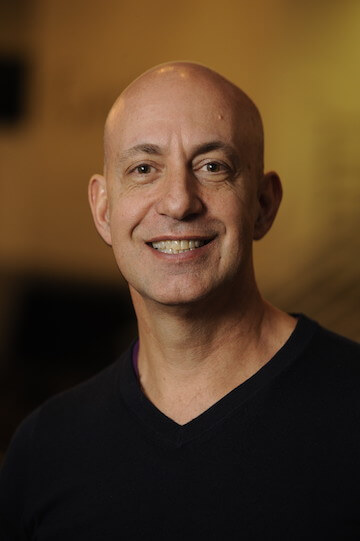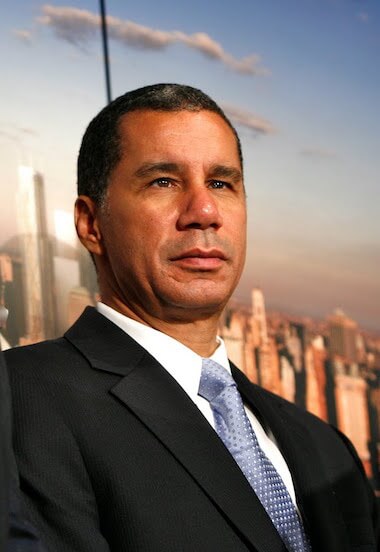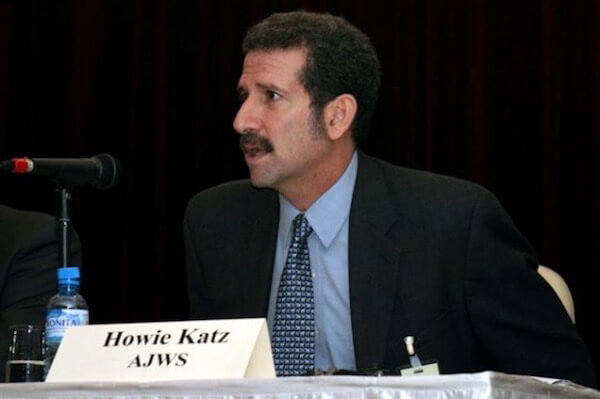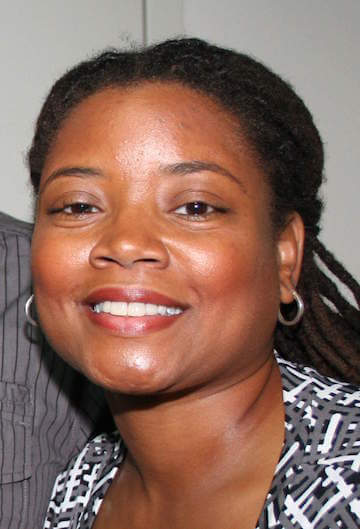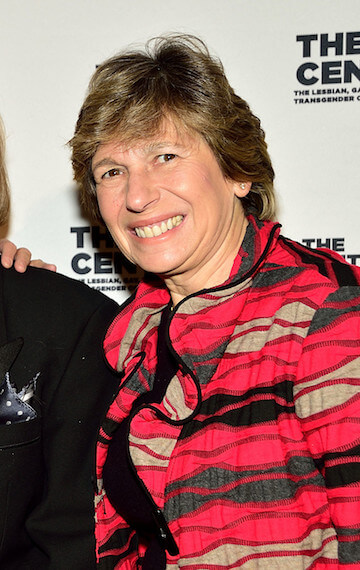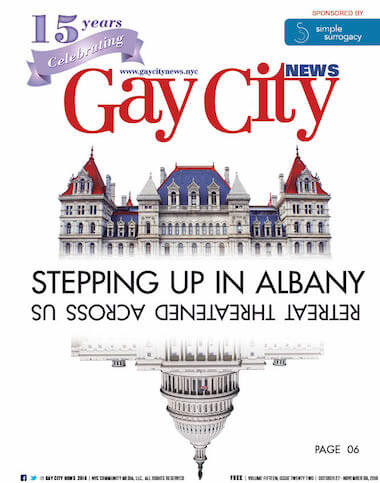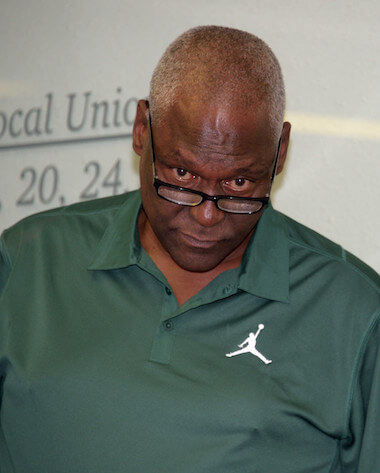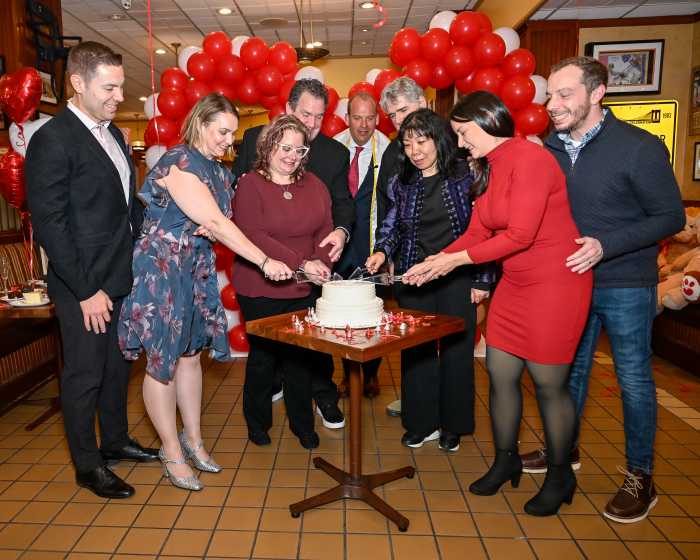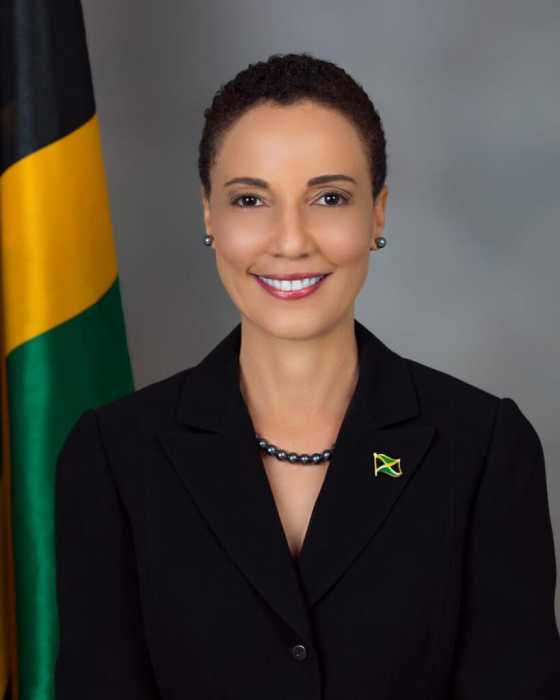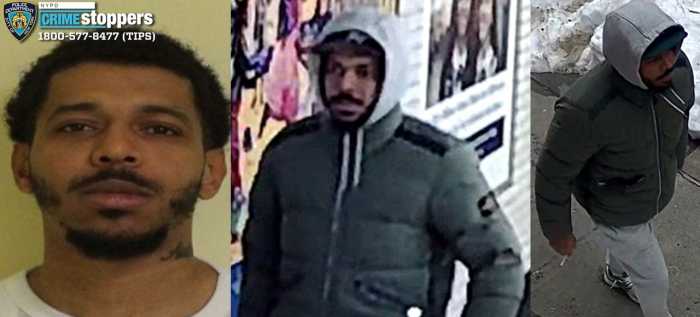BY PAUL SCHINDLER | The 33 individuals profiled in this commemorative special section come from many walks of life — government, healthcare, business, labor, law, the arts, advocacy, and activism. What all of them, in their unique ways, have in common is their engagement in the project of building community. And building community is a vital task as we face a future none of us likely expected a mere six months ago.
After eight years in which the LGBTQ community made unprecedented strides toward full equality and dignity in our society — with a federal government increasingly proactive in embracing our rights and aspirations — the world has been turned upside down.
A society that seemed ready to embrace the notion that transgender rights are human rights is suddenly governed by leaders who have signaled a brutal turnaround. Our hopes for — at long last — a federal law protecting all of us from discrimination, not only in employment, but housing, public accommodations, credit access, and more, now seem like a far-off dream. And loose talk about so-called religious freedom threatens federal laws or regulations that big-foot protections we’ve won at the state and local level nationwide.
America is turning its back on new immigrants and hunting down many who live and work and love and contribute in our midst. The recent improvements in healthcare access remain — even with last week’s GOP meltdown — imperiled. Donald Trump’s vision is of an America without urgently needed environmental protections, without support for the arts, without a State Department that represents values of equality, justice, and democracy around the globe, but with a military that looks set to grab all the winnings.
Community, coalition, purpose, and determination are the answers we must commit ourselves to. In the face of great danger, our community’s response so far has been heartening. We joined women around the world on January 21. We told Congress that they cannot turn their backs on decent and affordable healthcare. We’ve joined Rise + Resist. And protest and resistance will take a lead position in this year’s LGBTQ Pride March down Fifth Avenue.
Our souls have been tried before, and we have persevered. The 33 outstanding individuals we honor here convince me that we will do so again. Tonight, we celebrate their amazing achievements, talent, strength, vision, and — yes — heart.
Governor David Paterson.
Governor David A. Paterson
An Early Fierce Advocate for LGBTQ Rights
David Alexander Paterson served as the 55th governor of New York State, between 2008 and 2010. Coming to office on the heels of a gubernatorial resignation was not the biggest challenge facing Paterson. Instead, it was the unfolding economic crisis of 2008. His warnings about an impending fiscal crisis in his Inaugural Address immediately raised eyebrows.
Despite the enormity of the challenges the Great Recession created, the new governor managed to reduce the Empire State’s budget deficits dramatically in each of the three years he was chief executive.
Given the role that sub-prime loans and mounting foreclosures played in creating the crisis, it was noteworthy that Paterson was also the first governor to enact criminal penalties for predatory lending.
Equally dramatic was action Paterson took in overhauling the draconian Rockefeller Drug Laws that for 35 years had deprived judges of sentencing discretion and doomed tens of thousands of low-level drug offenders to long prison sentences.
Paterson succeeded Eliot Spitzer, to that time the most pro-gay governor in New York’s history, having introduced same-sex marriage legislation in 2007, his first year in office. As Gay City News noted when Paterson stepped up to the governor’s office in March 2008, LGBTQ leaders in the state breathed a huge sigh of relief that Spitzer’s successor came to office with an even stronger record of support for the community’s goals.
Longtime gay activist Ethan Geto recalled that when the Assembly passed the marriage bill in 2007, “David, in what may have been an unprecedented act for a lieutenant governor, or any executive official, worked the floor of the State Assembly on the night that the vote on gay marriage was about to occur, encouraging and cajoling assemblymembers to support the bill and, importantly, making the crucial point that gay rights are fundamental civil rights.”
Alan van Capelle, who then headed up the Empire State Pride Agenda, also took note of that.
“Part of our winning strategy on the marriage bill was based on the counsel and advice of the lieutenant governor and his willingness to reach out to members of the Assembly,” van Capelle said. “And his commitment showed particularly on the day of the vote when he went to members he had spoken to right on the Assembly floor to shore up their vote. In my years going to Albany, I never saw a lieutenant governor, in fact any member of the executive do that.”
Prior to becoming lieutenant governor in 2007, Paterson served as a state senator from Harlem for more than two decades, the last four years as the Democratic minority leader. He held the seat earlier held by his father Basil, an iconic Harlem Democratic leader. Knowing David Paterson throughout his Senate career, Geto told Gay City News that one of the new governor’s guiding political principles was “that gaining equality under the law for blacks was the civil rights battle of his father’s generation, but that achieving full equality of opportunity for LGBT people is the core civil rights battle of his own generation.”
Born in 1954, Paterson grew into adolescence during the height of the black civil rights movement. Vision problems in his youth led to loss of sight in one eye and limited sight in the other, and Paterson has been legally blind since then. In college he learned that two men he knew well in his youth were gay, and Paterson said that helped him recognize the common obstacles posed by discrimination and disadvantage.
“When I was growing up nobody was openly gay,” he told Gay City News in a 2006 interview during his lieutenant governor run. “If they appeared to be gay, they got ridiculed with all sorts of epithets. I’m a human being and I once felt as they did.”
It was not long into his Senate tenure that Paterson proved his mettle on gay rights. In the late 1980s, as hate crimes legislation was first discussed seriously in Albany, Republicans hoped to claim credit on an issue popular among constituencies including the African-American and Jewish communities. The GOP was unwilling to include protections for gay and lesbian New Yorkers, but counted on black legislative leaders to embrace any progress possible on the issue.
Howie Katz, the gay activist who led the hate crimes bill coalition in New York for more than a decade (and another Impact Award winner this year), and Matt Foreman, who headed the Pride Agenda when the bill finally passed in 2000, both recall that Paterson was one of two African-American legislators who spearheaded the refusal to compromise on the inclusion of sexual orientation in the legislation.
“He was just great, our key point person in the Senate on hate crimes legislation,” Foreman told Gay City News in 2002 at the time Paterson became Senate minority leader.
“I know of no more principled person in the political community,” Katz said at that time.
During Paterson’s time as governor, the state enacted the Dignity for All Students Act, an anti-bullying measure that for the first time protected transgender New Yorkers in state law.
As he had done with the Assembly in 2007, Paterson took a hands-on approach to the State Senate’s first vote on marriage equality in late 2009. Though he did not go onto the Senate floor during the debate — perhaps mindful of his role as head of a co-equal branch of government — when the vote came up short, he did not hesitate to show his continued commitment to the issue. He walked onto the Senate floor to embrace the bill’s supporters and to show his determination to LGBTQ activists in the gallery.
Though that vote did not deliver equal marriage rights, the tally gave our community a roadmap to what needed to be done to secure victory. With the targeted flip of several seats in the elections that followed, the message had been sent. Marriage equality prevailed the next time it came up in the Senate, in June 2011.
Since stepping down as governor in January 2011, Paterson has hosted a popular drive-time radio show on WOR-AM, served as an adjunct professor of government at New York University, and since moved to the Touro College School of Osteopathic Medicine, an institution committed to increasing care in understerved communties.
He served as chair of the State Democratic Party from 2014 to 2016, and now is the director of investments at Stifel, Nicolaus & Company.
Ana María Archila.
Ana María Archila
Colombian Immigrant Who’s a Leading NYC Social Justice Voice
Having emigrated from Colombia to the US at the age of 17, Ana María Archila has become one of the nation’s leading advocates for civil rights, access to decent and affordable health care, equity in education funding and resources, and immigrant rights.
In 2004, Archila was named a Coro Fellow by a foundation dedicated to creating “the next generation of change-makers.” Her fellowship followed by a year her appointment as executive director of the Latin American Integration Center. In 13 years leading LAIC, which in 2007 merged with Make the Road Walking to create Make the Road New York, she strengthened adult literacy, youth development, and health access services to immigrants citywide and on Long Island.
Using a community organizing model, Archila worked to strengthen immigrant political participation through voter education and mobilization. LGBTQ organizing in immigrant and lower-income communities has also been central to Make the Road New York’s mission.
Archila co-directs the Make the Road Action Fund and is now co-executive director of Make the Road’s sister organization, the Center for Popular Democracy, which works in partnership with high-impact, base-building groups, organizing alliances and progressive unions to create equity, opportunity, and a dynamic democracy with an agenda that is pro-worker, pro-immigrant, and dedicated to racial and economic justice. The group’s portfolio is broad, encompassing climate justice, education fairness, housing, minimum wage and paid sick leave advances, and Wall Street accountability.
Over her career, Archila has advanced her views in a wide range of media venues, both English- and Spanish-language. In Newsday, she outlined how state legislative redistricting practices have shortchanged the growing African-American, Latino, and immigrant communities on Long Island. In a Spanish-language essay in El Diario, Archila warned against educational policies that don’t prioritize students’ needs. Prior to the nation’s embrace of marriage equality, as Congress debated immigration reform, Archila, in a Gay City News op ed, argued that the needs of binational same-sex couples and other LGBTQ immigrants must be part of any acceptable legislative package. For the Washington journal The Hill, she explained how partnering among groups seeking change and policy experts can chart a path toward progress.
Andrea Batista Schlesinger.
Andrea Batista Schlesinger
Advocate for Change with Scholarly Instinct for Critical Thinking
Andrea Batista Schlesinger is the deputy director of US Programs at the Open Society Foundations, an organization created by George Soros with the aim of building vibrant and tolerant societies with governments accountable and open to the participation of all people. The foundations’ key concerns are the rule of law, respect for human rights and minorities, defending diversity of opinion and an independent media, preserving democracy, and building civil societies that keep government power in check. The organization works to build international alliances to battle corruption and uphold freedom of information worldwide, and prioritizes the improvement of the lives of marginalized people.
As deputy director of US Programs, Schlesinger oversees a portfolio that includes criminal justice and drug policy reform, battling discrimination, black male achievement, and national security and counterterrorism.
Before joining the Foundations, Schlesinger served as a special advisor to Mayor Michael Bloomberg, coordinating his Young Men’s Initiative to improve the life outcomes of young black and Latino males. During Bloomberg’s 2009 campaign, she advised the mayor on higher education, immigration, and housing.
For eight years, Schlesinger led the Drum Major Institute for Public Policy, a think tank co-founded by Dr. Martin Luther King, Jr., in 1966, which today carries forward his social change legacy by promoting economic justice, building community, and fostering human rights globally. During her tenure, the Drum Major Institute was noted for its analytical work on immigration issues and the economic squeeze faced by the middle-class and its advocacy of effective policies to promote equity and justice. Schlesinger also created a program to connect students from underrepresented communities to policy careers upon completion of their education.
In 2009, Schlesinger published “The Death of Why: The Decline of Questioning and the Future of Democracy” (2009), an analysis of how and why easy answers in today’s world have discouraged the instincts for critical and independent thinking.
Schlesinger, a University of Chicago graduate, has a double master’s in history from Columbia University and the London School of Economics where she studied economic inequality in cities globally. Early in her career, she advised Bronx Borough President Fernando Ferrer on educational issues.
Christopher Bram.
Christopher Bram
Novelist, Essayist, and a History Nerd Since Youth
Christopher Bram is the author of an eclectic range of nine novels and, most recently, several nonfiction works. His 1987 debut, “Surprising Myself,” told the coming of age story of a gay teen who, with the lover he meets working in a summer camp, moves to New York where he learns most of all about himself. “Hold Tight,” his second novel a year later, offered a dramatic shift in tone, in a erotically-charged tale of underground gay life and foreign espionage set in male brothel in World War II Manhattan.
In seven novels that followed, Bram immersed readers in an impressively diverse array of worlds: a circle of gay friends reckoning with the loss of one to AIDS in “In Memory of Angel Clare,” a closeted State Department career spent in the Marcos-era Philippines in “Almost History,” the collision of an ACT UP East Villager and a closeted gay Republican, who ends up murdered, in “Gossip,” spirituality and show biz in post-Civil War America in “The Notorious Dr. August: His Real Life and Crimes,” the world of New York theater-hopefuls in “Lives of the Circus Animals” (Lambda Literary Award-winner for Best Gay Male Fiction), and forbidden love between a coupled gay artist and teacher and a visiting Iranian painter, who arrives in Virginia with his Russian wife as the US hurtles toward war in Iraq, in “Exiles In America.”
“Father of Frankenstein,” Bram’s 1995 imagining of the final days of James Whale, the director of “Frankenstein,” is a heart-rending story of gay life in Old Hollywood, adapted for film in “Gods and Monsters,” with an Oscar-winning screenplay by director Bill Condon and starring Ian McKellen, Lynn Redgrave, and Brendan Fraser.
Bram’s work also include a collection of essays, “Mapping the Territory,” a sweeping history of gay writers over more than 50 years post-World War II in “Eminent Outlaws: The Gay Writers Who Changed America” (which won the Publishing Triangle’s Randy Shilts Award), and his most recent, “The Art of History: Unlocking the Past in Fiction and Nonfiction,” a meditation on how our past is reflected and refracted in what we read. About that book, Bram told Gay City News, “I love history. I am a history nerd, I always have been. As a kid, I fell in love with history books long before I fell in love with fiction… My second novel, ‘Hold Tight,’ turned out to be an historical novel. I was delighted to discover I could combine my two great loves.”
Raised in Virginia, Bram came to New York in 1978, where he met his partner, the filmmaker Draper Shreeve. He was named a Guggenheim Fellow in 2000 and, in 2003, was honored with the Publishing Triangle’s Bill Whitehead Award for Lifetime Achievement. Bram teaches at NYU’s Gallatin School of Individualized Study.
Lisa Cannistraci.
Lisa Cannistraci
Barkeeper With Unquenchable Thirst to Give Back to Her Community
Henrietta Hudson first opened its doors for business Halloween night 1991, but its co-founder and owner Lisa Cannistraci started tending bar at the 438 Hudson Street address half a dozen years earlier. In 1985, a rainstorm drove Cannistraci, then working at a Wall Street establishment, to seek out the comfort of what was then a different lesbian bar, and she caught the owner’s eye. Before long, she was serving up drinks in the West Village.
“I feel like I have been at 438 Hudson Street since March 1985, with maybe a year break out of that,” Cannistraci told Gay City News in 2013, pointing to some gap time between the earlier bar’s shuttering and Henrietta’s birth. “This is my 28th year here. If it didn’t rain, I would never have walked in… and Henrietta’s definitely would not have been here.”
In which case, many lesbians and untold numbers of LGBTQ community groups would have been the worse. Cannistraci quickly made Henrietta’s a go-to place for celebrating community victories and raising funds — hundreds of times — to support non-profit and political endeavors. No doubt a key ingredient in the bar’s role in local queer life is Cannistraci’s eager embrace of a community leadership role. She is particularly proud that when DOMA was struck down in 2013, in a case brought by her friend Edie Windsor, Cannistraci was serving as vice president of Marriage Equality USA.
In her 2013 interview, Cannistraci traced her activist roots to the boycott that followed Colorado’s 1992 enactment of a voter referendum prohibiting gay and lesbian anti-discrimination ordinances. She recalled that tennis great Martina Navratilova originally supported the boycott, but changed her mind and said so one evening at Henrietta’s. Cannistraci sent her packing.
Since 2002, she’s served on Manhattan Community Board 2, focusing particularly on LGBTQ, youth, and elderly issues on the Social Services Committee. Out gay State Senator Brad Hoylman, who once chaired CB2, termed her “an indefatigable member of the West Village,” whose “insight on small business issues and commitment to LGBT causes have been invaluable” on the board.
Hoylman offered particular praise for the loving assistance Cannistraci provided to the late Stonewall activist Stormé DeLarverie into her 90s, securing legal guardianship and making sure she found an appropriate assisted living facility to spend her final days.
Staceyann Chin.
Staceyann Chin
Writer, Performance Poet, “Not-So-Easily-Categorized” Activist
Writer, performance poet, and activist Staceyann Chin has been honored by the American Immigration Council, Immigration Equality, the Human Rights Campaign, and the New York State Senate. Co-writer and an original performer in the Tony-winning “Russell Simmons Def Poetry Jam on Broadway” (for which she won a Drama Desk Award), Chin has won rousing cheers at the Nuyorican Poets Café, in one-woman Off-Broadway shows — including “Hands Afire,” “Unpeakeable Things,” and Border/Clash” — and in writing workshops from Sweden to South Africa and Australia. On “The Oprah Winfrey Show,” this proud Jamaican national spoke candidly about her experiences growing up on the island and the dire consequences of her coming out there.
Chin, author of the memoir “The Other Side of Paradise,” opened her solo theater piece “MotherStruck,” directed by Cynthia Nixon and produced by Rosie O’Donnell, in New York in December 2015 and has since toured the work. She has appeared at innumerable colleges speaking and performing, including NYU, Holy Cross, Harvard, the University of Illinois, the University of California at San Diego, Yale, and the University of the West Indies.
In Chin’s telling, her activist life began with the fury of performance poetry. Winner of the 1999 Chicago People of Color Slam, the 1998 Lambda Poetry Slam, the 1998 and 2000 Slam This, and WORD: The First Slam for Television, she and her her work have been featured in Curve, Venus, Essence, the New York Times, Retorik Magasinet, Newsday, the Jamaica Gleaner, the Village Voice, and the South African Times. Her chapbooks include “Wildcat Woman,” “Stories Surrounding My Coming,” “Catalogue the insanity,” and “The Mad Hatter: Volumes I and II,” and her work has been published in many anthologies.
The Center for Women and Gender at Dartmouth selected her for a Visionary in Residence award, and she remains Poet in Residence at The Culture Project. In 2006, Derek Walcott, a Nobel laureate in literature, invited Chin to study with him at Boston University.
On the average day, she has said, Chin writes disjointed journal entries, feeds her dog, obsesses about global poverty, and attempts to bridge the divide between African Americans and the Caribbean. All while trying to be a-not-so-easily-categorized political body committed to being an everyday activist navigating today’s America with integrity.
JD Davids. | LOUIE ORTIZ-FONSECA
JD Davids
HIV/ AIDS Journalist and Social Justice Activist
JD Davids began his activist career in ACT UP Philadelphia, and, in 1996, he co-founded Philadelphia FIGHT’s Project Teach (Treatment Education Activists Combating HIV), a program to train people living with HIV to act as peer educators in underserved communities hardest hit by the epidemic, focused not only on prevention but treatment outreach and advocacy, as well. Davids was also an organizer at HealthGAP (Global Access Project), a coalition of AIDS and human rights activists, people living with HIV, public health experts, and fair trade advocates campaigning against the neglect and greed that deny treatment to millions and fuel HIV’s spread. Davids’ earliest concerns included expanding clean syringe access, mitigating the harm of managed care, slashing the global price of HIV treatment, and confronting the horrors of prison medical care.
In 2003, Davids moved to New York and founded the Community HIV/AIDS Mobilization Project (CHAMP), a national network that focused its work on HIV/ AIDS, prevention, and social justice, building bridges to other movements addressing socioeconomic and racial inequality. CHAMP no longer exists in its original form, but its HIV Prevention Justice Alliance carries on its work supporting the emergence of new HIV activists of all ages at the AIDS Foundation of Chicago.
Davids is the managing editor of TheBody.com, an online platform about HIV/ AIDS that aims to lower barriers between patients and clinicians, demystify HIV and its treatment, improve the quality of life for those living with the virus, and foster community. In that mission, the site has a sister publication for health care professionals, TheBodyPRO.com.
Given his expertise on HIV/ AIDS prevention and treatment, Davids was a member of the Division of AIDS at the National Institutes of Allergy and Infectious Diseases’ Strategic Working Group and was named to Columbia University’s Revson Fellow program that offers mid-career development for those who make substantial leadership contributions to the city.
Davids is a member of the Jews for Racial and Economic Justice board as well as the Aftselakhis Spectacle Committee, a queer Jewish collective that produces a legendary Purim shpil. In response to the election of Donald Trump, Davids co-created #ActivistBasics, which provides approachable videos, podcasts, and curated content for new activists as well as those now re-engaging.
AndreÌs Duque.
Andrés Duque
Advocacy in New York and Throughout the Americas
For more than two decades, Queens resident Andrés Duque has been a leader in New York’s LGBTQ community, active in the fight against AIDS, in ensuring visibility for the Latino queer community as well as its accurate portrayal in the press – particularly the Spanish-language media – and as a writer and blogger on a wide range of issues, both local and internationally.
During the 1990s and into the early 2000s, Duque served as a top official at the Latino Commission on AIDS and also led Mano a Mano, a network that brought together 15 small, grassroots Latino groups. By working in coalition, the group was able to secure nearly a million dollars in grants to address the specific needs of LGBTQ Latino New Yorkers.
Mano a Mano also took on the role of media watchdog, pressing for visibility in the city’s Spanish-language media and also challenging homophobia where it reared its head. The network’s campaign against a morning radio program that featured virulently anti-gay content led GLAAD to launch its Spanish-language media program. Mano a Mano also played the lead role in challenging Latino community opponents of marriage equality.
In the mid-2000s, Duque launched his popular Blabbeando blog, which was a pioneer among English-language media in shining a spotlight on the emerging LGBTQ civil rights movement throughout all of Latin America.
As a Spanish-speaker with broad familiarity with and travel to Latin nations throughout the hemisphere, Duque brought a unique ability to understand and explain developments across many societies.
Nominated for Blog of the Year by GLAAD in 2011, Duque’s work drew attention from mainstream media outlets, as well, from the New York Times, Los Angeles Times, Washington Post, and National Public Radio to Fox News.
Duque has contributed to Gay City News, as well, along with The Advocate, El Diario La Prensa, Hoy, Fox News Latino, and Color Lines, and has appeared on NY1’s Spanish-language “Pura Politica” political roundtable.
As a recognized community leader, Duque has served on the board of the Empire State Pride Agenda and Outright Action International and was a founding board member at both the Queens Pride House and the Audre Lorde Project, which advocates on behalf of the city’s diverse LGBTQ communities of color.
He also acted in advisory roles at GLAAD, the Stonewall Foundation, and the Civil Marriage Collaborative.
Duque currently works as a housing specialist at the Queens Pride House.
Bryan John Ellicott
Bryan John Ellicott
A Young Man With a Long Record of Activism
A fierce advocate for social and reproductive justice — and specifically for the bisexual and transgender communities — Bryan John Ellicott was born and raised in Staten Island, where he lives. A longtime activist, he came to wide public attention when he filed suit against the city Department of Parks and Recreation for a 2013 incident at Joseph H. Lyons Pool in Staten Island, when, at the age of 23, he was ordered to leave the men’s locker room as he was changing his T-shirt. The pool staffer who approached him explained someone had complained that he shouldn’t be there. Ellicott asked to speak to a supervisor, but two other staff members backed up the first one, telling him he needed to either use the women’s locker room or leave.
“I was humiliated and embarrassed for being singled out,” Ellicott said when the Transgender Legal Defense and Education Fund filed his suit, citing the 2002 city human rights law barring discrimination based on gender identity and expression. The city settled in 2015.
Ellicott has testified on numerous occasions before the New York City Council on legislation affecting the LGBTQ community, including the inclusion of a self-designated gender marker on the city’s IDNYC cards, the need for more comprehensive sex education in the public schools, the push to eliminate the tampon tax, and the requirement that all single-use bathrooms in public places be made gender-neutral.
At a press conference announcing enactment of three new local laws requiring the city and its contractors to collect more specific data on who uses their services, including whether they are LGBTQ, Ellicott said, “Some of our Staten Island elected officials like to say there aren’t a lot of LGBT people in their districts. Now we’ll be able to say, ‘Yes you do, and here’s where they live.’”
Ellicott recently joined the staff of Councilmember Carlos Menchaca, an out gay Brooklyn Democrat, and is responsible for digital and social media coordination. Prior to joining Menchaca’s office, Ellicott worked at #VoteProChoice, a group working to elect officials who support women’s reproductive freedom.
The vice president of the Staten Island Democratic Association, Ellicott is also on the executive board of the Stonewall Democrats of New York City and a board member of BiNet- USA, the nation’s oldest advocacy organization for bisexual, pansexual, fluid, queer-identified, and unlabeled people.
Ashley C. Ford. | NICK TURNER
Ashley C. Ford
An Urgent — and Influential — Young Voice
Ashley C. Ford, an Indiana native now living in Brooklyn, is a writer, editor, and public speaker, but that description does little to capture her impact on conversations going on in America today. A recent example from Twitter provides illustration why. With the handle @iSmashFizzle, Ford has nearly 74,000 followers. Last month, she tweeted: “A cool thing you can do today is try to find out which of your local schools have kids with overdue lunch accounts and pay them off.” US shool kids who can’t afford the standard cafeteria lunch are offered paltry substitutes — often just a cheese sandwich and a carton of milk. According to CNBC, three quarters of all school districts have unpaid student lunch debts, meaning lots of kids getting little nutrition to get through the day.
If you doubt that social media works, consider this: that one tweet from Ford spawned an online campaign that, according to the AP, paid off $100,000 in unpaid lunch debt in Minneapolis and $28,000 in next door St. Paul. Big results also turned up in Topeka, Kansas, Bellevue, Washington, and Evansville, Indiana. For all the talk about social media abuse, consider this as well: Ford’s efforts to build support for the Ferguson, Missouri, public library garnered $450,000 in donations.
Ford is working on a memoir and is a senior features writer at Refinery29.com, a lifestyle site that aims to inspire creativity in life. She’s been published in The Guardian, ELLE, BuzzFeed, Slate, and Teen Vogue. Her speaking gigs have included SXSW, Earlham College, and Hippocamp Nonfiction Writing Conference, and she’s taught writing at the New School.
Ford’s body of written work is impressively eclectic, taking on big social and political issues, but often bringing her personal lens to the matter. Last year for Fusion, she wrote about her father being imprisoned for rape and sexual battery during most of her 29 years in a piece that included the stories of three others in similar straits. For I-D, Ford wrote, “What Grace Jones Taught Me About Fashion and Ferocity,” and for ELLE, “I’m Not Grateful for Viola Davis’ Win – It Was Long Overdue.”
Whether in long or short form, Ford’s words carry weight. Rated a leading influencer among writers by Klear Influencer Marketing, among her tweets with the greatest impact was: “White men make up the majority of mass shooters & domestic terrorists here, but you want to ban brown people. You don’t care about safety.”
Suzanne Goldberg.
Suzanne Goldberg
Civil Rights Litigator, Sexual and Gender Law Scholar
With nationally recognized expertise in discrimination law as well as sexuality and gender law, Suzanne B. Goldberg is a professor at Columbia University Law School. She came to her role as a scholar and teacher after a distinguished tenure as a civil rights litigator with Lambda Legal.
In 1996 as a senior staff attorney at Lambda, Goldberg was co-counsel in the LGBTQ’s first major victory before the US Supreme Court, in the Romer v. Evans case. There, the high court struck down Colorado’s Amendment 2 – which barred that state and its localities from enacting gay rights protections – finding that the voter initiative denied gay and lesbian residents of their equal protection rights based on nothing more substantial than moral disapproval. That finding would prove a pivotal advance that paved the way for the significant victories the community has won at the high court in the two decades since.
In 2002, Goldberg also served as co-counsel on Lambda’s challenge to the nation’s remaining sodomy laws, which triumphed at the Supreme Court in Lawrence v. Texas. In that case, too, the court concluded that moral opprobrium could not justify infringing on the “liberty interest” of gay people. In 2002, 14 states still had sodomy laws on the books, which could be used to prosecute consensual sexual conduct and also as pretext for denying government benefits, including employment.
At Columbia, where she founded and directs the Sexuality and Gender Law Clinic and the Center for Gender and Sexuality Law, Goldberg’s research investigates both procedural and substantive barriers to equality in American law, topics she has discussed in the media, including on CNN and “20/ 20.”
She is also the school’s first executive vice president for University Life, where she focuses on student life, intellectual life, and community citizenship – with the goal of reinforcing and broadening the Columbia community’s commitment to respect, inclusion, and ethical leadership. Goldberg received Columbia Law School’s Willis L.M. Reese Prize for Excellence in Teaching, and since 2012 she has co-chaired the university’s Commission on the Status of Women.
Prior to joining the Columbia faculty, Goldberg taught at Rutgers School of Law-Newark and at Fordham Law School.
Goldberg is an honors graduate of Brown University, after which she was a Fulbright Fellow at the National University of Singapore. After getting her law degree from Harvard, she clerked for New Jersey Supreme Court Justice Marie Garibaldi.
In 2011, Goldberg was honored with the Community Vision award from the LeGal Foundation of the LGBT Bar Association of New York.
Oriol Guitierrez, Jr.
Oriol R. Gutierrez, Jr.
Editorial Leadership on Vital Health, LGBTQ, and Latino Issues
As editor-in-chief of POZ magazine and its website, POZ.com, Oriol Gutierrez, Jr., has two decades of experience in editorial leadership on issues of health and wellness, the LGBTQ and other diverse communities, and the specific needs of the nation’s large Latino population.
Founded in 1994, POZ is the leading general readership information source for people living with and affected by HIV/ AIDS, providing investigative features and, through its website, blogs, social media engagement, videos, and daily news addressing a wide spectrum of needs and interests.
Gutierrez’s insight into HIV issues is informed by his own personal experiences, having been diagnosed with the virus in 1992.
POZ is among the magazines published by Smart + Strong, and Guiterrez also has responsibilities as editor-in-chief of both TuSalud, a bilingual Spanish/English magazine for Latino health and wellness, and hep, a magazine that does for readers affected by hepatitis what POZ for decades has delivered for those affected by HIV. TuSalud, launched in 2007 and available in doctors’ offices, health clinics, and community centers, is the nation’s leading health magazine for Latinos, covering fitness and nutrition as well as general health issues. hep, first published in 2010, is a self-empowerment source for people affected by chronic hepatitis challenges, especially regarding the ever-changing state of treatment for hepatitis C infection.
Prior to joining POZ, Gutierrez was managing editor of DiversityInc magazine, which covers workplace diversity management. At Lesbian and Gay New York, a predecessor publication to Gay City News, Gutierrez co-founded LGNY Latino, the nation’s first bilingual Spanish/ English LGBTQ publication. Earlier in his career, he was executive editor of Pet Business magazine and publications business director for the American Society for the Prevention of Cruelty to Animals.
Gutierrez is a frequent speaker and moderator at conferences, and has appeared on NY1, National Public Radio, and Sirius XM Radio. MyLatinoVoice.com named him one of the “25 Most Influential GLBT Latinos.”
Gutierrez is an NYU graduate, with a bachelor ‘s degree in journalism and a master’s in publishing. He served in the US Marine Corps Reserve, and is a former vice president of print and new media for the National Lesbian and Gay Journalists Association. Gutierrez blogs at blogs.poz.com/oriol.
Senior Bishop Zachary Glenn Jones.
Senior Bishop Zachary Glenn Jones
Spiritual Solace, Youth Outreach for LGBTQ African Americans
Senior Bishop Zachary Glenn Jones discovered the Unity Fellowship Church Movement in 1987, while living in Los Angeles. The movement had been founded by Archbishop Carl Bean, who had a decade before come to prominence by recording the Motown gay anthem, “I Was Born This Way.”
Jones gravitated toward this ministry because of the HIV/ AIDS work it was doing.
Unity Fellowship’s work caught on in African-American LGBTQ communities across the nation, and a group of New York activists contacted the archbishop requesting a church here.
Leaving behind family and friends, Bishop Jones unhesitatingly answered the call of the New York community, arriving here in 1992. As New York Newsday noted in 1994, only 10 people turned out for his first service on May 10, 1992 at the LGBT Community Center on West 13th Street. In a matter of months, however, that number had mushroomed to over 300. The church now holds services on Sundays at 11 a.m. at 2578 Atlantic Avenue, between Alabama and Georgia Avenues, in Brooklyn.
Early in his ministry here, Jones organized Unity Fellowship Breaking Ground, an effort to assist LGBTQ youth in coming out to their families and finding counseling and support on issues including HIV/ AIDS and gender transition.
“I remember my youth and how difficult it was to communicate my heart to my family,” Jones recalled. “In many cases, I was living a lie and that was torture. I didn’t want other young people to have to go through that alone.”
Jones’ activism has focused on identifying more funding for LGBTQ organizations within the African-American community and spotlighting crimes committed against its members.
He remained particularly dogged in keeping attention on the brutal 2005 murder of Rashawn Brazell, a young gay man in Brooklyn, demanding police attention and justice in a crime long thought of as a “cold case,” but which yielded an arrest last month.
Jones was also a member of Governor Andrew Cuomo’s task force on ending the AIDS epidemic by 2020.
The recipient of numerous awards, including from Gay Men of African Descent and Key Women of America Concourse Village Branch, Jones is senior bishop of the entire Unity Fellowship Church Movement denomination, consisting of nearly 20 churches and fellowships.
Howie Katz.
Howie Katz
Dogged Fighter for Hate Crimes Protections
During a career where he’s held senior posts in LGBTQ and Jewish community groups and on staff for top elected officials — most prominently, Governor David Paterson — Howie Katz played the lead role in mobilizing community and political support for New York’s hate crimes law.
That statute, enacted in 2000, represented the first time lesbian, gay, and bisexual New Yorkers won specific protections under state law. Beginning in 1990 as the development director at the Gay and Lesbian Anti-Violence Project, Katz created the Hate Crimes Bill Coalition, a network of advocates from diverse communities pushing for comprehensive hate crimes protections for categories including sexual orientation. Katz and his allies — including elected officials such as then-State Senator Paterson — hung tough against Republican efforts to weaken the bill by excluding gay men and lesbians from protection.
In 1992, Katz organized an eight-day, 160-mile walk from New York City to Albany to raise awareness of hate crimes, but with the GOP controlling the State Senate the slog to enact an inclusive law was a long one. When Katz and his fellow advocates crossed the finish line in 2000, he’d been serving for three years as the New York regional director of the Anti-Defamation League, the first out gay official to achieve such a post anywhere in the nation. In 2002, Katz became the national outreach director for American Jewish World Service.
Between 2008 and 2010, Katz served as special assistant to Governor Paterson, where he played a lead role in the enactment of the Dignity for All Students Act, anti-bullying legislation that for the first time created protections based on gender identity and expression in New York State law. He was also part of the Paterson team that brought about long-overdue reform of the draconian Rockefeller Drug Laws.
Throughout his career, Katz has been active in community organizations and political campaigns. He was a Human Rights Campaign board member from 1987 until 2001, and on the political stump he raised funds for Tom Duane’s first City Council campaign and advised Bronx Borough President Fernando Ferrer during his 2001 mayoral race. Following the tragic 1999 police killing of Amadou Diallo, an innocent and unarmed Bronx man, NYPD Commissioner Howard Safir named Katz to an advisory council for an up and down review of training procedures.
In the 1982 San Francisco Gay Games, he played in the competition’s first-ever basketball game. Today, Katz, who recently lost his father at age 97, works with his family to care for his 94-year-old mother.
Terrance Knox.
Terrance Knox
Arts Development Professional Dedicated to Leveling All Playing Fields
As director of corporate buiness at the Brooklyn Academy of Music, Terrance Knox creates new funding opportunities to support the arts at one of the nation’s most innovative and diverse performance complexes. Knox, born in Oklahoma, raised in Kansas, and a 15-year Brooklyn resident, works to create a level playing field for people of color and the LGBTQ community.
A past president and longtime board member of Brooklyn’s Lambda Independent Democrats, he has focused on advancing LGBTQ issues but also ensuring that the community works in tandem with other key Democratic constituencies, including African Americans and other people of color. In a 2008 op ed in Gay City News, Knox called out State Senator Marty Golden, Brooklyn’s one Republican member of the Senate, for his opposition to Governor David Paterson’s order that New York State agencies, in compliance with a state court ruling, honor out-of-state same-sex marriages. “What Marty may not understand is that there are many lesbian, gay, bisexual, and transgendered people and couples in his district, and some of them are already married,” Knox wrote. “Senator Golden joined this lawsuit filed by religious extremists and other homophobic legislators.”
That same year, Lambda endorsed Hillary Clinton over Barack Obama, but even as the club’s president, Knox cautioned against the primary creating racial fissures. He told Gay City News he ran across statements from Clinton advocates disparaging the Illinois senator’s “work ethic… comments that in a corporate setting would have an equal opportunity human resource staff member swoop in to calm things down.” When Obama, in his second Inauguration, stated, “The most evident of truths — that all of us are created equal — is the star that guides us still; just as it guided our forebears through Seneca Falls, and Selma, and Stonewall,” Knox saw it as a teaching moment for all Americans, saying that for people he grew up around those words likely provided “an ‘aha’ moment.”
Knox has also served on the Brooklyn Community Pride Center board since its founding, on the Brooklyn Hospital Community Advisory Board, and as co-chair on Community Board 2’s Health, Environment, and Social Services Committee. With the Doe Fund, Knox works with men with histories of homelessness, incarceration, and HIV/ AIDS.
Donna Lieberman.
Donna Lieberman
In Perilous Times, at the Forefront of Defending Civil Liberties
Donna Lieberman, as executive director of the New York Civil Liberties Union, has, since 2001, led the state’s leading legal advocacy group protecting those whose rights are most vulnerable, including people of color, immigrants, young people, and low income families and individuals. During her tenure, fighting for the rights of LGBTQ New Yorkers has been a central mission of the group.
In 2006, the NYCLU was among a number of legal advocates, including Lambda Legal, the American Civil Liberties Union, and Roberta Kaplan of Paul, Weiss, Rifkind, Wharton & Garrison, that brought the issue of marriage equality before the state’s highest bench, the Court of Appeals. Given its conservative composition, the New York court did not follow in the trailblazing path set by the Massachusetts high court three years earlier, though Chief Judge Judith Kaye’s dissent became an influential beacon in the emerging legal conversation about equal marriage rights nationwide.
With the judicial route blocked, the NYCLU was an important voice in the 2011 victory of marriage equality in the Legislature and, in tandem again with Kaplan and the ACLU, took up Edie Windsor’s challenge to the federal Defense of Marriage Act, which the US Supreme Court struck down in June 2013. Though the high court specifically cautioned it was not ruling on the broader question of a constitutional right to marry, the precedent was cited again and again by district and appeals courts that overturned marriage bans across the country. By June 2015, the high court had embraced marriage equality.
Under Lieberman’s leadership, the NYCLU pushed to reform the NYPD’s broken windows policies, end stop and frisk abuses, reduce criminalization in school disciplinary practices, cut back on solitary confinement in prisons, and put meat on the bones of the right to counsel in New York courts. When protesters massed at the 2004 GOP Convention in New York, the NYCLU fought to protect their right to assembly and represent the large numbers arrested and held, some in defiance of a federal court order.
Lieberman was also a key leader in the successful fight for New York State’s Paid Family Leave Act and founded the NYCLU’s Reproductive Rights Project. A Harvard graduate, she earned her law degree at Rutgers. In 2005, she was awarded the Margaret Sanger Award by Planned Parenthood of New York City.
Carmen Neely.
Carmen Neely
Identifying Needs in Harlem and Committing Herself to Tackle Them
In Carmen Neely’s telling, she didn’t have particularly high expectations when she threw a Pride block party in Harlem in 2010. “I thought it would be a one-time event,” she recalled. “I didn’t realize the need it filled.”
Nearly seven years later, Harlem Pride, which Neely serves as president, has grown so big it can no longer be contained in its recent home, the 10-block ribbon Jackie Robinson Park. This summer, the event will take place on Manhattan’s far west side at 12th Avenue, between 135th and 138th Streets. The new space allows Harlem Pride to present an improved stage set-up, engage more sponsors, and host more activities, community tables, food vendors, and — of course — participants celebrating Pride.
Neely, who earned her bachelor’s of fine arts in theater management at Howard University and a master’s in teaching from Fordham, discussed that “need” she hadn’t originally recognized at a Harlem community meeting sponsored by Manhattan Community Board 10’s LGBTQ Task Force and Borough President Gale Brewer held in late 2015. There, an overflow crowd numbering well over 100 — with more than 100 more turned away by security at the Adam Clayton Powell, Jr., State Office Building on West 125th Street — was testament to the hunger in Harlem for forging stronger social, political, and support ties among a diverse and growing queer population there.
Among the topics discussed that evening were the need for a new leadership organization serving the neighborhood and the city’s queer communities of color generally and also for a community center serving LGBTQ people living in Upper Manhattan. Both efforts are ones where Neely has also taken on leadership responsibilities.
As co-chair of the New York City Equality Coalition, she is of one of the black and Latino same-gender-loving and LGBTQ leaders who have joined together to advocate, educate, and marshal resources for their community’s benefit. Among their key goals are combating the tide of hate violence against LGBTQ people of color, particularly those who are transgender, advocating as well for trans people’s housing and employment rights, supporting immigrants, and pressing for adequate funding for LGBTQ communities of color generally.
Another key aim is establishing a Harlem community center, an effort where Neely is a board member. At the 2015 meeting, Brewer pledged her support in identifying needed resources, and last month she was joined by Congressmember Adriano Espaillat, Assemblymember Inez Dickens, City Councilmember Bill Perkins, and Community Board 10 in establishing a task force to coordinate government, business, and community efforts for making it a reality.
Anthony Nicedemo.
Anthony Nicodemo
Leader On and Off the Court
Anthony Nicodemo, the head boys basketball coach at Yonkers’ Saunders Trades and Technical High School, chose a high profile perch to publicly announce he is gay. He told Gay City News several years back that he used a chance to speak out at the 2013 LGBT Sports Coalition Summit in Portland, Oregon, as a first step toward becoming a local community leader as an openly gay coach and teacher. His story garnered nationwide attention, with features in the New York Times and Outsports as well as on ABC’s “Good Morning America.”
Nicodemo’s honesty also earned the respect of his young players. The season after he came out was a banner year for the Blue Devils, the team going 18-3 and winning the Yonkers city championship. For the first time since 1982, Saunders reached the state sectional semi-finals. In Nicodemo’s first year at Saunders, the team had only three wins. For the 2014-15 season, he was named the Lower Hudson Basketball Coaches Association’s Coach of the Year.
Since his appearance at the 2013 summit, Nicodemo, who teaches social studies at REACH Academy in West Harrison, has worked with the You Can Play Project, the Sports Equality Foundation, and the Gay, Lesbian and Straight Education Network (GLSEN), and locally on the City of Yonkers LGBT Advisory Board as well as an advisory group for Center Lane, the LGBTQ arm of Westchester Jewish Community Services. A grant he secured funded a round of conferences educating male and female high school basketball players about bullying.
“It went so well that we extended it,” Nicodemo explained, with a gathering “that had over 200 students, representation from over 60 schools, and included all the fall sports — football, field hockey, volleyball, boys and girls soccer, cross-country running, swimming.”
“I used to say to my ex, ‘I’m going to come out, and when it happens, I’m going to be a leader in the LGBT world,’” he told Gay City News. “And when I say that, it’s not out of cockiness or ego. I just tend to fall into a leadership role in the things I do.”
Nicodemo happily credits others who went before him, pointing to the chance he’s had to work with Jason Collins, who finished up his 13-year NBA career as an out gay Brooklyn Nets player.
“One of the reasons that this all started [for me] was being inspired by [Collins] coming out as a professional basketball player,” Nicodemo explained. “He’s the kind of guy you want representing you in the movement. Total class, and an unbelievable role model for kids.”
Eunic Ortiz.
Eunic Ortiz
Leveraging Digital Know-How to Create Change
An expert in digital communications and public affairs, Eunic Ortiz has spent the past decade working in the labor movement, in private sector public affairs consulting, and at the New York City Council. During the same period, she has worked as a Democratic Party activist to bring LGBTQ concerns to the fore in the party at the city, state, and national level.
Ortiz currently serves as director of online communications for 1199SEIU United Healthcare Workers East, a union that represents more than 400,000 healthcare service workers in New York and throughout the Northeast and beyond. Often described as one of the most powerful — if not the most powerful — labor organizations in the state, 1199 is also the nation’s largest healthcare union. 1199 was famously called “my favorite union,” by Dr. Martin Luther King, Jr., and “the authentic conscience of the labor movement.”
Prior to joining 1199, Ortiz was an account supervisor at FleishmanHillard, a public relations firm where she provided digital, social media, and stakeholder communications advice to clients ranging from New York City agencies to international governments and major US corporations.
Working for Speaker Christine Quinn at the City Council, Ortiz was a spokesperson and digital manager, responsible for the Council’s online operations.
Ortiz began her career as a news producer, first in her native Florida and later here in New York.
Ortiz is a past president of the Stonewall Democratic Club of New York City, the state’s largest LGBTQ political club that works with elected officials in all five boroughs and is active in policy advocacy at City Hall and in Albany. One of her signature programs while the club’s president was a scholarship program developed in tandem with the City University of New York to provide a full year’s tuition to an LGBTQ student interested in a government and public policy career.
Ortiz was a New York State delegate to the 2012 Democratic National Convention in Charlotte that re-nominated President Barack Obama for his second term.
Ortiz has a master’s degree from New York University and earned her bachelor’s of science from the University of Florida and her associate of arts degree from St. Petersburg College. Having grown up near Orlando, she now lives in Washington Heights.
Leo Preziosi, Jr.
Leo Preziosi, Jr.
Modeling Pride, Confidence, and Self-Direction for LGBTQ Youth
More than 16 years ago, Leo Preziosi, Jr., was enjoying a career as a fashion designer when he read an article in Metrosource magazine about two high school students who committed suicide after being bullied. Inspired by the thought that something needed to be done and he was ready to take leadership in doing so, Preziosi dedicated himself to creating an organization to empower young LGBTQ adults to find meaning and take pride in their future by connecting them with community leaders to serve as role models and mentors.
In 2001, he created Live Out Loud, a non-profit built on a singular premise — to inspire LGBTQ youth to live authentic lives by providing a tangible and ongoing platform for encouragement, guidance, and support.
Today,

